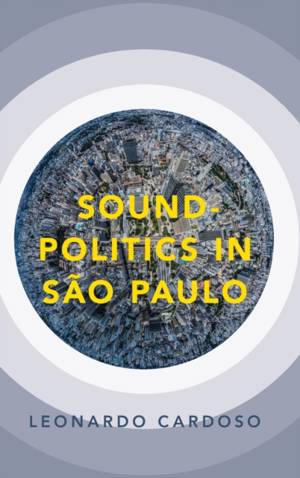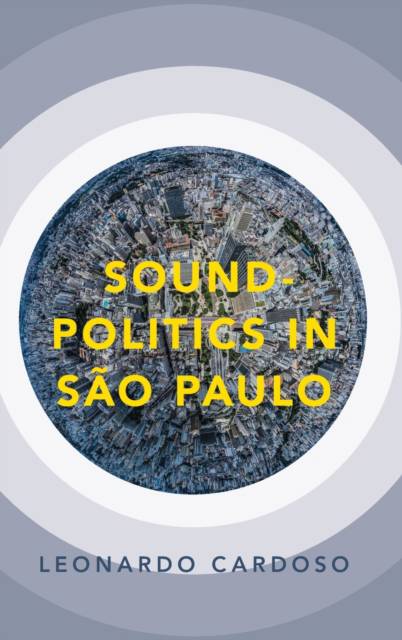
- Afhalen na 1 uur in een winkel met voorraad
- Gratis thuislevering in België vanaf € 30
- Ruim aanbod met 7 miljoen producten
- Afhalen na 1 uur in een winkel met voorraad
- Gratis thuislevering in België vanaf € 30
- Ruim aanbod met 7 miljoen producten
Zoeken
Omschrijving
How does the state separate music from noise? How can such a filtering apparatus shape the content and form of sound production in the city? As a marker of co-presence to the hearing body, sound is always open to (or rather opens up) the politics of shared existence. In the throes of the post-dictatorship period, Brazil's legislative and executive branches implemented a series of sweeping measures to address quality of life concerns, including environmental pollution and urban inequality. In São Paulo, noise control became a recurrent controversy, growing in size and scale between the 1990s and 2010s. Together with the much-debated fear of crime and the socioeconomic and cultural tensions between the rich urban center and the poor peripheries, such ecological agendas against noise as a harmful pollutant have reconfigured the presence of environmental sounds in the city. In this book, Cardoso argues that the framing of specific sounds as unavoidable, unnecessary, or as harmful
"noise" has been an effective strategy to organize spaces and administer group behavior in this rapidly expanding city. He focuses on two interrelated processes. First, the series of institutional regulatory mechanisms that turn sounds into the all-embracing "noise" susceptible to state intervention. Second, the constant attempts of interested groups in either attaching or detaching specific sounds (musical events, industrial noise, traffic noise, religious sounds, etc.) from regulatory scrutiny. Sound-politics is the dynamic that emerges from both processes - the channels through which sounds enter (and leave) the sphere of state regulation.
"noise" has been an effective strategy to organize spaces and administer group behavior in this rapidly expanding city. He focuses on two interrelated processes. First, the series of institutional regulatory mechanisms that turn sounds into the all-embracing "noise" susceptible to state intervention. Second, the constant attempts of interested groups in either attaching or detaching specific sounds (musical events, industrial noise, traffic noise, religious sounds, etc.) from regulatory scrutiny. Sound-politics is the dynamic that emerges from both processes - the channels through which sounds enter (and leave) the sphere of state regulation.
Specificaties
Betrokkenen
- Auteur(s):
- Uitgeverij:
Inhoud
- Aantal bladzijden:
- 266
- Taal:
- Engels
- Reeks:
Eigenschappen
- Productcode (EAN):
- 9780190660093
- Verschijningsdatum:
- 4/06/2019
- Uitvoering:
- Hardcover
- Formaat:
- Genaaid
- Afmetingen:
- 239 mm x 160 mm
- Gewicht:
- 476 g

Alleen bij Standaard Boekhandel
+ 278 punten op je klantenkaart van Standaard Boekhandel
Beoordelingen
We publiceren alleen reviews die voldoen aan de voorwaarden voor reviews. Bekijk onze voorwaarden voor reviews.











